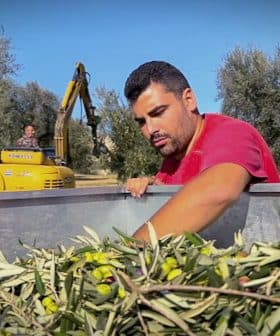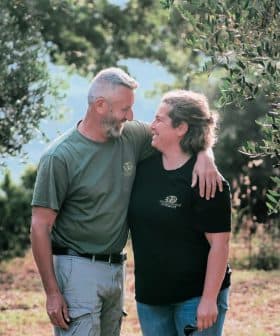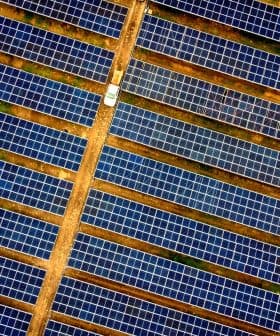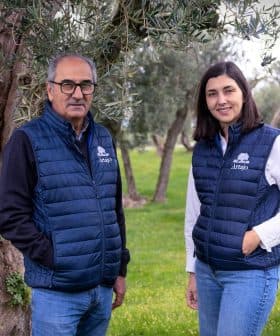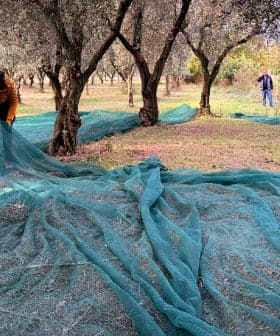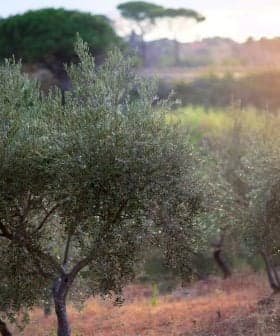European Parliament Approves Farm to Fork Strategy
Among the main tenants of the plan are animal welfare, emissions reduction and front-of-pack nutrition labeling. It will now be up to the European Commission to propose the formal legislation.
The European Parliament approved the Farm to Fork Strategy, with MEP Anja Hazekamp leading the proposal, supported by 452 MEPs. The strategy aims to create a healthier and more sustainable food system in the European Union, with a focus on reducing the use of pesticides, fertilizers, and antibiotics, and promoting animal welfare, emissions reduction, and nutrition labeling.
Last month, the European Parliament voted to adopt the Farm to Fork Strategy, paving the way for a healthier and more sustainable food system in the European Union.
The proposal by Anja Hazekamp, a Member of the European Parliament (MEP) from the European United Left – Nordic Green Left party and rapporteur for the committee on environment, public health and food safety, was supported by 452 MEPs. Meanwhile, 170 voted against it, and 76 abstained.
Intensive meat production and large-scale monocultures are currently too great a burden on humans and animals. Clear and measurable goals must be set for this.
It will now be up to the European Commission to propose the strategy as formal legislation. Once this has been done, the European Parliament and Council of the European Union will vote to ratify it.
See Also:Most Agricultural Spending Does More Harm Than Good, UN Report Claims“Our farmers are already doing a great job, so when we rightly ask them to further reduce their use of pesticides, fertilizers and antibiotics, we need to support them so production does not just move outside the E.U.,” said Herbert Dorfmann, the rapporteur for the committee on agriculture and rural development.
“Ensuring the availability of food at reasonable prices must continue to be a priority,” he added.
The E.U.’s approval of the Farm to Fork Strategy came in the wake of intense lobbying from both sides of the issue. Environmental groups vociferously supported the strategy, while the E.U. farmers’ association, COPA-COGECA, made desperate attempts to persuade MEPs against it.
During the deliberation and after the strategy’s passage, the lawmakers emphasized the need to have a sustainable food supply system that involved everyone from the farmer to the consumer.
To safeguard the ability of farmers to earn a fair share of the money made from their produce, MEPs proposed that the European Commission work to strengthen their role within the supply chain.
Among the main tenants of the strategy are animal welfare, emissions reduction and front-of-pack nutrition labeling (FOPL).
The lawmakers agreed to establish comprehensive, harmonized, science-based animal welfare indicators in the E.U. These include the need to end the use of cages in animal husbandry. Animal products from non‑E.U. countries that do not meet those requirements also would be banned.
The MEPs also called for ambitious emission reduction during food production paired with support for nature-based solutions and agroforestry.
The MEPs further suggested using a simplified FOPL to assist consumers in choosing healthier foods. In addition, the E.U. wants those labels made mandatory with any exemptions requiring science-based evidence.
However, MEPs previously voted to exempt single-ingredient foods in April from the FOPL.
Thomas Haahr, a press officer for the European Parliament, told Olive Oil Times that the full extent of the pan-European FOPL remains unclear and would need to be debated at the legislative stage of the process in the European Parliament.
However, supporters of the Farm to Fork strategy said they were moving in the right direction.
“Our food system needs to be reformed to function within the carrying capacity of our Earth,” Hazekamp said. “Intensive meat production and large-scale monocultures are currently too great a burden on humans and animals. Clear and measurable goals must be set for this.”
“Responsibility for more sustainable agriculture must be a joint effort by farmers and consumers,” Dorfmann concluded.
Share this article


